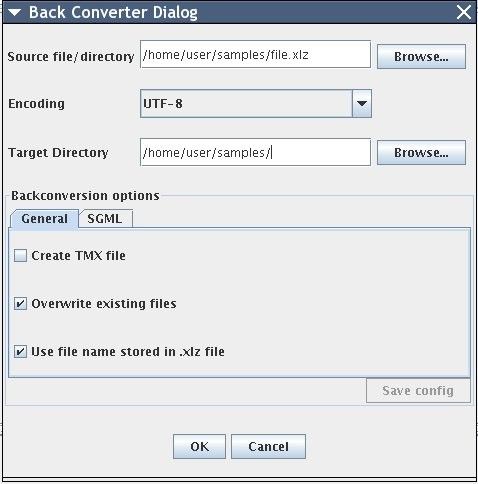

ITS metadata is only sent to plugins when the export data button in the ITS Plugin UI is pushed, which will export the LQI and Provenance data of the currently open file to the enabled ITS plugins.
ONLINE XLIFF EDITOR HOW TO
There are currently 2 methods, which determine how to handle a particular ITS metadata for a segment. The required methods for ITS plugins are given in the ITSPlugin.java interface, so every ITS plugin must implement this interface. ITS plugins are plugins that are interested in the ITS metadata of segments within an open file. There are currently two types of plugins Ocelot supports: ITS and Segment plugins. All plugins must implement the methods defined in the Plugin.java interface, which are used to display the plugin in the plugin manager UI. Plugins must be compiled into a jar file and placed under this directory, or a directory chosen by the plugin manager. The default plugin directory is located under /.ocelot/plugins. Id-match = # - hex representation of RGBĪll other XLIFF state qualifier types will be ignored. They are specified in the same file as the filter rules (the rules.properties file). Possible UI types are the border color, background color, and the text. They control how the flag on a segment in the segment view appears. The possible range of values for mtConfidence is 0.0 - 1.0įilter display rules control how to display segments that match a particular filter rule. = org | person | tool | revOrg | revPerson | revTool | provRef The possible range of values for locQualityIssueSeverity is 0.0 - 100.0 Markup | pattern-problem | whitespace | internationalization | Typographical | formatting | inconsistent-entities | numbers | Locale-violation | style | characters | misspelling | Grammar | legal | register | locale-specific-content | Untranslated | addition | duplication | inconsistency | = terminology | mistranslation | omission |

is a String that groups together filter conditions and display rules.
ONLINE XLIFF EDITOR INSTALL
When run on OS X, the install phase of the build will sign the Ocelot.appĪrtifact if the codesignId property is set in Maven. The install phase will also create a disk image (DMG) file if the The output jar file will located in the created target folder. Ocelot uses Maven, so all dependencies should be resolved upon build (mvn package). In the Ocelot JIRA and track all issues there. To report a bug or request an enhancement, please create an account DocumentationĪdditional documentation is available on the

These files are also available on the Releases page.
ONLINE XLIFF EDITOR MAC
There are also native executables for the Windows and Mac platforms. It implements the localization quality issue and provenance data categories from the proposed ITS 2.0 standard and utilizes the Okapi Framework for parsing XLIFF files.Ī pre-compiled version of Ocelot is available from the Okapi downloadsĪs a JAR file that will run on any platform that has Java 1.7 or later Ocelot is an open source workbench for working with XLIFF files in a post-editing and language review environment.


 0 kommentar(er)
0 kommentar(er)
